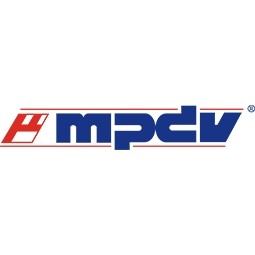Customer Company Size
Mid-size Company
Region
- Europe
- America
- Asia
Country
- Germany
- China
- Czech Republic
- India
- Poland
- United States
Product
- HYDRA by MPDV
Tech Stack
- Windows Server
- SQL Database
- SAP ERP System
Implementation Scale
- Enterprise-wide Deployment
Impact Metrics
- Productivity Improvements
- Digital Expertise
- Employee Satisfaction
Technology Category
- Functional Applications - Manufacturing Execution Systems (MES)
- Functional Applications - Enterprise Resource Planning Systems (ERP)
Applicable Industries
- Equipment & Machinery
- Automotive
Applicable Functions
- Discrete Manufacturing
- Business Operation
Use Cases
- Manufacturing System Automation
- Factory Operations Visibility & Intelligence
- Process Control & Optimization
Services
- Software Design & Engineering Services
- System Integration
About The Customer
ARGO-HYTOS is a medium-sized family business with over 1,300 employees, specializing in Fluid & Motion Control and Filtration technology for mobile and industrial hydraulics. With more than 65 years of experience, the company is a key component and system supplier in the supply chain of world market leaders in mobile working machinery and mechanical engineering. ARGO-HYTOS operates production companies in Germany, Czech Republic, Poland, India, USA, and China, along with various sales offices and assembly sites worldwide. The company is committed to innovation and efficiency in its operations, seeking to enhance transparency and productivity across its global production sites.
The Challenge
ARGO-HYTOS faced challenges in increasing transparency and efficiency at their production site in Kraichtal-Menzingen. The company needed a solution to collect and analyze data on machine standstills to gain insights into machine efficiencies. The existing systems were not providing the level of detail and integration required to optimize machine assignments and improve overall production efficiency. Additionally, there was a need to consolidate the IT landscape and replace the existing Time & Attendance system to streamline operations and reduce manual data recording.
The Solution
To address the challenges, ARGO-HYTOS implemented the Manufacturing Execution System (MES) HYDRA by MPDV at their Kraichtal-Menzingen site. The initial implementation included the HYDRA modules for Shop Floor Data, Machine Data, and Shop Floor Scheduling, which enabled detailed planning of orders and automatic assignment of orders to individual machines based on specifications from the ERP system. This integration allowed for real-time data collection on machine status, production quantities, and order processing times, which were displayed on large monitors for employee visibility. In the next phase, ARGO-HYTOS expanded the functionality of HYDRA by adding modules for Time & Attendance, Personnel Time Management, Premium & Incentive Wages, and Access Control. This expansion replaced the existing Time & Attendance system, consolidated the IT landscape, and enabled paperless workflows for processes like leave application and approval. The Access Control module ensured that only authorized personnel could enter the premises, with all entries and attempts logged and evaluated. The successful implementation at Kraichtal-Menzingen and the Czech site in Vrchlabi led to a rollout of HYDRA to other sites in India, USA, China, and Poland.
Operational Impact
Quantitative Benefit

Case Study missing?
Start adding your own!
Register with your work email and create a new case study profile for your business.
Related Case Studies.

Case Study
Smart Water Filtration Systems
Before working with Ayla Networks, Ozner was already using cloud connectivity to identify and solve water-filtration system malfunctions as well as to monitor filter cartridges for replacements.But, in June 2015, Ozner executives talked with Ayla about how the company might further improve its water systems with IoT technology. They liked what they heard from Ayla, but the executives needed to be sure that Ayla’s Agile IoT Platform provided the security and reliability Ozner required.

Case Study
IoT enabled Fleet Management with MindSphere
In view of growing competition, Gämmerler had a strong need to remain competitive via process optimization, reliability and gentle handling of printed products, even at highest press speeds. In addition, a digitalization initiative also included developing a key differentiation via data-driven services offers.

Case Study
Predictive Maintenance for Industrial Chillers
For global leaders in the industrial chiller manufacturing, reliability of the entire production process is of the utmost importance. Chillers are refrigeration systems that produce ice water to provide cooling for a process or industrial application. One of those leaders sought a way to respond to asset performance issues, even before they occur. The intelligence to guarantee maximum reliability of cooling devices is embedded (pre-alarming). A pre-alarming phase means that the cooling device still works, but symptoms may appear, telling manufacturers that a failure is likely to occur in the near future. Chillers who are not internet connected at that moment, provide little insight in this pre-alarming phase.

Case Study
Premium Appliance Producer Innovates with Internet of Everything
Sub-Zero faced the largest product launch in the company’s history:It wanted to launch 60 new products as scheduled while simultaneously opening a new “greenfield” production facility, yet still adhering to stringent quality requirements and manage issues from new supply-chain partners. A the same time, it wanted to increase staff productivity time and collaboration while reducing travel and costs.

Case Study
Integration of PLC with IoT for Bosch Rexroth
The application arises from the need to monitor and anticipate the problems of one or more machines managed by a PLC. These problems, often resulting from the accumulation over time of small discrepancies, require, when they occur, ex post technical operations maintenance.

Case Study
Data Gathering Solution for Joy Global
Joy Global's existing business processes required customers to work through an unstable legacy system to collect mass volumes of data. With inadequate processes and tools, field level analytics were not sufficient to properly inform business decisions.







